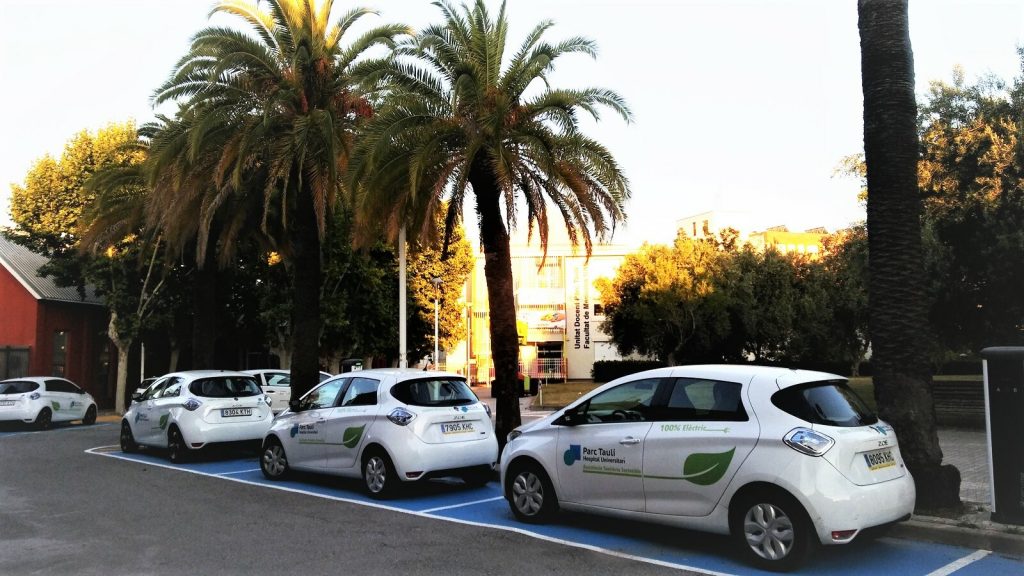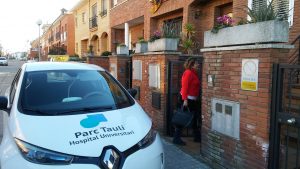
The Home Hospitalization Unit (HaD): a personalized care alternative
https://www.tauli.cat/blogs/hospitalitzacio-domicili/wp-content/uploads/sites/12/2019/07/20190711_204016-1-1024x576.jpg 1024 576 Eva A. Sánchez Martos Eva A. Sánchez Martos https://www.tauli.cat/blogs/hospitalitzacio-domicili/wp-content/uploads/sites/12/2019/07/ESanchez.jpg Illness is part of our agenda at some point in our lives suddenly and irreversibly.
Illness is part of our agenda at some point in our lives suddenly and irreversibly.
Let's say a person gets sick and is admitted to the hospital and with that he loses his freedom without knowing the day he will return home. In the event that it is a prisoner, who is in prison, he knows or has a suspicion of when he will leave the prison. In contrast, a patient does not know it.
In Spanish healthcare until fifty years ago this was inevitable. In the case of Catalonia, it has been more than twenty-five years since a hospital admission can be made at home. For this to happen, the doctor who takes the patient to the conventional hospital decides that he does not need the hospital building to receive treatment.
The Home Hospitalization Unit (HaD) assesses whether the patient meets the criteria to be admitted to his unit such as: living in the area of influence of the hospital, having the help of a family member or friend and that his illness is stable and he can follow the same treatment at home. For all this, everything you need is moved to your home, be it oxygen therapy, nebulizations, electrocardiograms, blood draws, complex treatments, serums, intravenous treatments…
The units are made up of doctors and nurses who visit patients regularly and do so 365 days a year. Admission to these units provides the patient with personalized care, tailoring care and treatments to each patient’s habits, customs, and beliefs.
For professionals, home hospitalization provides us with information that cannot be achieved with conventional care, and that often leads us to adjust the diagnosis.
Recent studies carried out by the National Home Hospitalization Society have shown the quality of care perceived by the patient and his environment. 97% of respondents acknowledge that they would again make use of a HaD income.
In conclusion, we can say that it is a care system that benefits the patient by reducing the risk of infection in the hospital and, at the same time, benefits the family because it does not alter their daily lives with visits to the hospital. On the other hand, the professional is favored by the possibility of adjusting diagnoses and care to the real needs of patients.
Today, it is a world-renowned healthcare system. Countries like Australia or the United States are the most similar to our units in HaD. Many South American countries such as Argentina, Colombia and Peru visit us during the year to apply our techniques in their units in HaD. In Europe, professionals from France, Germany or Italy come to learn from what we do.
We will talk about the research we do, on continuity of care among the teams that care for the patient, on pathologies and treatments at home, as well as on complex or very significant cases that make other professionals see the reality of the patient at home.
We wish to reach all of you.
- Category:
- News
Eva A. Sánchez Martos
Degree in Nursing from the UAB. I have a Masters in Cardiology and another in Vascular Surgery from the UB. I have trained as a researcher in II.SICarlos III and have led many research projects such as the EMIRTHAD study on therapeutic non-compliance. For thirty years I have been improving as a nurse. Twenty years ago I helped the birth of Home Hospitalization in Parc Taulí.
All entries by: Eva A. Sánchez Martos2 comments
-
-
Beatriz Diez
Home hospitalization needs to expand much more as it is a great benefit for both young and old society. Encouragement in this great task


ALBA
Do a great job !! Home hospitalization is the future.